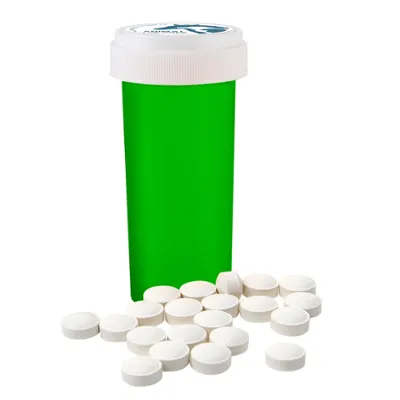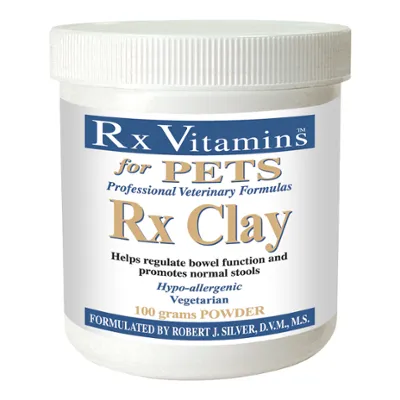Diarrhea is a very common ailment that brings dogs to the veterinary clinic. While many cases of canine diarrhea can resolve on their own within a few days, it’s a symptom that should never be ignored or taken lightly. The underlying causes of diarrhea are numerous, and for some, the most effective approach involves specific Prescription Medication For Diarrhea In Dogs. This comprehensive guide, from the experts at Dog Care Story, delves into why treating dog diarrhea effectively is crucial and explores the various medications that can help restore your dog’s digestive health.
Ensuring your dog’s well-being extends beyond immediate issues. Just as understanding common digestive upsets is important, so is recognizing other potential concerns like knowing the best liquid allergy medicine for dogs if your canine companion suffers from seasonal discomforts. Addressing all aspects of their health proactively can prevent more serious complications down the line.
Why Treating Dog Diarrhea is Crucial for Their Health
Diarrhea itself isn’t a diagnosis; it’s a clear symptom indicating an underlying health issue. When a dog experiences diarrhea, food passes through their digestive tract too rapidly, preventing the proper absorption of essential water, nutrients, and electrolytes. This results in stools that are loose and watery, rather than firm and well-formed. In some instances, dog poop may even contain alarming signs such as blood or mucus.
Beyond making your dog feel miserable, persistent diarrhea can lead to severe health consequences, primarily due to significant fluid loss and subsequent dehydration. This is particularly dangerous for vulnerable groups. Puppy diarrhea, for example, can quickly become life-threatening because a young puppy’s body lacks the reserves to cope with rapid dehydration. Similarly, diarrhea in senior dogs and those with compromised immune systems poses a heightened risk.
Effective diarrhea relief is fundamental for “resetting” the digestive system and restoring its normal function. For milder cases, at-home remedies such as dietary rest, rehydration, and a temporary fast might suffice. However, in more severe situations, or when a specific pathogen is identified as the culprit, your veterinarian will likely recommend appropriate anti-diarrhea medicine, often in the form of prescription medication for diarrhea in dogs.
Different Types of Dog Diarrhea Medication
The market offers a wide array of dog diarrhea medicine options, but it’s important to understand that not all are equally effective or safe. Some may even cause more harm than good if used improperly. To help pet parents navigate these choices, here’s an overview of over-the-counter (OTC) anti-diarrheal medicines, probiotic supplements, and the crucial category of prescription drugs specifically formulated to treat diarrhea in dogs.
Over-the-Counter (OTC) Anti-Diarrheal Medicines
You’re probably familiar with common human OTC anti-diarrheal medications like Imodium, Kaopectate, and Pepto Bismol, found readily in pharmacies and grocery stores. These are designed to relieve diarrhea and other gastrointestinal upsets in people. Many dog owners often wonder, “Can dogs take Imodium?” or other human remedies they already have at home.
The answer, generally, is no, or only under strict veterinary guidance, because these human medicines can be harmful to your dog. Imodium, for instance, works by slowing the movement of food through the digestive tract. While safe for humans, it carries a risk of potential side effects in dogs that could put your pet in danger. Kaopectate and Pepto Bismol contain active ingredients that, while intended to coat and protect the intestinal lining, can be toxic to canines.
It is paramount that you never administer these medicines to treat your dog’s diarrhea without explicit approval from your veterinarian! Although canine Imodium may be used off-label in certain situations, it always requires professional input and precise dosing. When considering various remedies for pet issues, remember that even seemingly harmless natural solutions, such as an all natural flea and tick killer, should be researched for dog-specific safety and efficacy. If your vet does recommend an OTC diarrhea medication for your pet, follow their exact dosing instructions and promptly report any concerns or changes in your dog’s health.
Probiotic Supplements for Canine Gut Health
A dog’s gut, much like a human’s, is home to billions of beneficial bacteria. These microscopic allies play a vital role in digestion, bolster a robust immune system, and prevent harmful bacteria from overpowering the intestinal flora. Diarrhea, unfortunately, can severely deplete these essential good bacteria, throwing the delicate gut microbiome out of balance.
Probiotic supplements are an excellent way to help relieve dog diarrhea by replenishing and boosting these beneficial gut bacteria. By re-establishing a healthy balance, probiotics promote overall digestive health and can significantly aid in recovery from loose stools. While many probiotic supplements are formulated for humans, and won’t necessarily harm your dog, a probiotic specifically designed for canines is always the superior choice. This is because humans and dogs have different intestinal flora, and a species-specific probiotic will provide your dog with the most effective support for their unique digestive system.
Exploring Prescription Anti-Diarrheal Medicines
When it comes to persistent or severe cases of canine diarrhea, prescription medication for diarrhea in dogs often targets the specific pathogen or underlying cause. For example, if your veterinarian identifies intestinal inflammation as the cause of diarrhea, an antibiotic such as metronidazole might be prescribed to combat bacterial involvement. Conversely, if intestinal parasites are found to be responsible for your dog’s loose stools, a broad-spectrum dewormer like Panacur (fenbendazole) would be the appropriate course of action.
Your vet may also prescribe dog-safe medications that function similarly to certain human OTC solutions, but with formulations specifically approved for veterinary use. For instance, diphenoxylate is a prescription anti-diarrheal medicine for dogs that works to slow digestion, much like Imodium, but is tailored for canine physiology. These targeted treatments are frequently considered the best prescription medication for diarrhea in dogs, as their efficacy depends directly on addressing the specific cause and severity of the symptoms. Just as for serious conditions like diarrhea, for other persistent issues, such as exploring home remedies for fleas on dogs, consulting with a vet ensures you choose safe and effective solutions over potentially harmful ones.
Top Prescription Medication Options for Canine Diarrhea
While diarrhea can sometimes be the body’s natural way of expelling harmful substances, and your veterinarian might occasionally advise allowing it to run its course, in many situations, an underlying health cause or severe symptoms necessitate intervention. In such cases, your vet will likely recommend a specific anti-diarrheal medication. Here are several commonly prescribed and highly recommended prescription medications for diarrhea in dogs.
Metronidazole (Flagyl, Metizol, Protostat, Metrogel)
Metronidazole is a powerful prescription antibiotic and antiprotozoal medication, meaning it is effective at killing both bacteria and certain parasites known to cause diarrhea in dogs. It is typically administered orally. Your veterinarian will prescribe Metronidazole if diagnostic tests confirm that a bacterial infection or a protozoal parasite is the root cause of your dog’s diarrhea.
While rare, metronidazole for dogs can, in some instances, cross the blood-brain barrier, potentially leading to neurological symptoms. Other possible side effects include nausea, fatigue, and a decrease in appetite. It is critically important to administer this medication precisely as directed by your veterinarian; never adjust the dosage or give it without explicit instructions.
 Metronidazole tablets in a blister pack, a common prescription medication for bacterial and parasitic infections in dogs
Metronidazole tablets in a blister pack, a common prescription medication for bacterial and parasitic infections in dogs
Proviable DC Capsules
Proviable DC Capsules are a highly regarded probiotic supplement designed to help restore healthy levels of beneficial gut bacteria, which are often depleted during episodes of diarrhea. These capsules contain seven distinct species of live, beneficial bacteria, working synergistically to re-establish a healthy gut microbiome. They are typically given once daily by mouth or as otherwise instructed by your veterinarian.
Proviable Forte Chewable Tablets
As another excellent probiotic supplement, Proviable Forte Chewable Tablets also play a crucial role in promoting good gut health in dogs. These chewable tablets contain the same beneficial bacterial species found in the Proviable capsules, offering a convenient alternative for administration. They are also typically given once daily by mouth or as directed by your veterinary professional.
Rx Clay Powder
Rx Clay Powder offers a dual-action approach to relieving canine diarrhea. Firstly, it effectively adsorbs toxins produced by harmful bacteria within the gut. This adsorption process binds the toxins to the clay, which is then safely excreted from the body, carrying the harmful substances along with it. Secondly, the clay promotes the reabsorption of water in the digestive tract, thereby significantly reducing fluid loss through diarrhea. Because the body does not absorb the clay itself, there is minimal risk of overdose, making it a safe option. Dosage is typically one scoop per 10 pounds of body weight, given orally, or as prescribed by your vet.
 Rx Clay Powder for dogs, an effective absorbent for toxins and promoter of water reabsorption in the digestive tract
Rx Clay Powder for dogs, an effective absorbent for toxins and promoter of water reabsorption in the digestive tract
Endosorb Tabs
Endosorb Tabs, also known as canine Endosorb, are chewable tablets formulated to provide effective diarrhea relief by helping to restore normal stool consistency. One of the medication’s key active ingredients is attapulgite, which works by coating and soothing the irritated intestinal lining. These tablets are administered orally every four hours, with the dosage determined by your dog’s body weight, as directed by your veterinarian. Beyond digestive issues, recognizing other common ailments and appropriate care, such as remedies for a home remedies for sneezing dog, is part of comprehensive pet wellness.
Nutrigest Capsules
Nutrigest Capsules are designed to help restore and maintain the delicate balance of beneficial bacteria in your dog’s gut, while also working to repair inflammation and irritation of the intestinal lining that can be caused by diarrhea. Its active ingredients include a blend of probiotics and glutamine, an essential amino acid and building block of protein. Additionally, soothing ingredients like aloe are incorporated to further calm the intestinal lining. These capsules are typically given two to three times daily, with the specific dosage tailored to your dog’s body weight and prescribed by your veterinarian.
Choosing the Right Prescription Medication for Diarrhea in Dogs
Determining the most effective way to treat your dog’s diarrhea always requires close collaboration with your veterinarian. Your vet will likely want to conduct a thorough examination of your dog and may recommend various diagnostic tests to pinpoint the exact cause of the diarrhea. This diagnostic process is crucial for selecting the best course of treatment.
Several key factors will influence your vet’s recommendation for the proper treatment plan, including:
- Cause, severity, and duration of diarrhea: Is it acute or chronic? What is the suspected trigger?
- Additional symptoms: Is there vomiting, lethargy, or fever?
- Age: Puppies and senior dogs have different needs and vulnerabilities.
- Overall health: Are there any underlying medical conditions or medications that could impact treatment?
It is absolutely vital to follow your vet’s treatment plan precisely. If your vet determines that your dog requires prescription medication for diarrhea, they will recommend the most appropriate drug or combination of treatments. As with any health condition, treating your dog’s diarrhea might involve some degree of trial and error. Continuously monitor your dog’s symptoms and provide regular updates to your vet. Let them know if your dog’s diarrhea is improving, remaining the same, or worsening, as the treatment plan may need to be adjusted based on your dog’s response.
 A veterinarian performing an examination on a dog, highlighting the importance of professional diagnosis for dog diarrhea
A veterinarian performing an examination on a dog, highlighting the importance of professional diagnosis for dog diarrhea
Essential Tips for Administering Dog Diarrhea Medication
Diarrhea is an unpleasant experience for both your dog and you, so it’s natural to want a quick and successful resolution. Here are a few key tips to maximize your chances of effectively treating your dog’s diarrhea, especially when it involves prescription medication.
- Do not delay starting treatment: Contact your veterinarian as soon as you notice your dog exhibiting symptoms of diarrhea. Prompt action can significantly shorten the recovery period and prevent complications.
- Follow your vet’s instructions carefully: Whether your veterinarian advises specific home remedies or prescribes medication, adhere strictly to their instructions to ensure the best possible response to treatment and to avoid potential adverse effects.
- Monitor your dog diligently: Observe your dog closely for any changes in their condition. Notify your veterinarian immediately if the diarrhea is not improving, if new symptoms develop, or if your dog’s overall health appears to be deteriorating. For comprehensive pet care, it’s also good to know how to handle other common issues, such as understanding home remedies for flea bites on dogs for quick relief.
Frequently Asked Questions About Prescription Medication for Dog Diarrhea
If your dog is experiencing diarrhea, it’s natural to have many questions about the condition itself and the best ways to treat it. Here, we address some common inquiries related to canine diarrhea and the role of prescription medication.
How long is too long for a dog to have diarrhea?
Most mild cases of diarrhea in dogs tend to resolve on their own within 1 to 2 days. However, if your dog’s diarrhea persists beyond a couple of days, or if it is severe from the outset, it’s crucial to contact your veterinarian for guidance. Prolonged diarrhea can lead to serious dehydration and indicates a potentially more significant underlying issue.
What should I give a dog with diarrhea and vomiting?
Dogs suffering from digestive upset, especially with both diarrhea and vomiting, often have little to no appetite. Given that both conditions cause significant fluid loss, maintaining adequate hydration is absolutely essential. Always ensure your dog has free access to fresh, clean water. If you’re concerned your dog isn’t drinking enough, or if they can’t keep water down, contact your vet immediately for advice on rehydration strategies, which might include subcutaneous fluids or hospitalization.
Is it safe to give human medications to dogs with diarrhea?
Generally, human anti-diarrheal medications are not safe for dogs. The active ingredients in many human products, such as loperamide (Imodium), bismuth subsalicylate (Pepto Bismol), and attapulgite (Kaopectate), can be toxic to dogs or cause adverse side effects. These medications can also interact dangerously with other medications your dog might be taking. You should never administer human anti-diarrheal medicines to your dog unless specifically advised and carefully dosed by your veterinarian. Always prioritize veterinary consultation for any health concerns.
